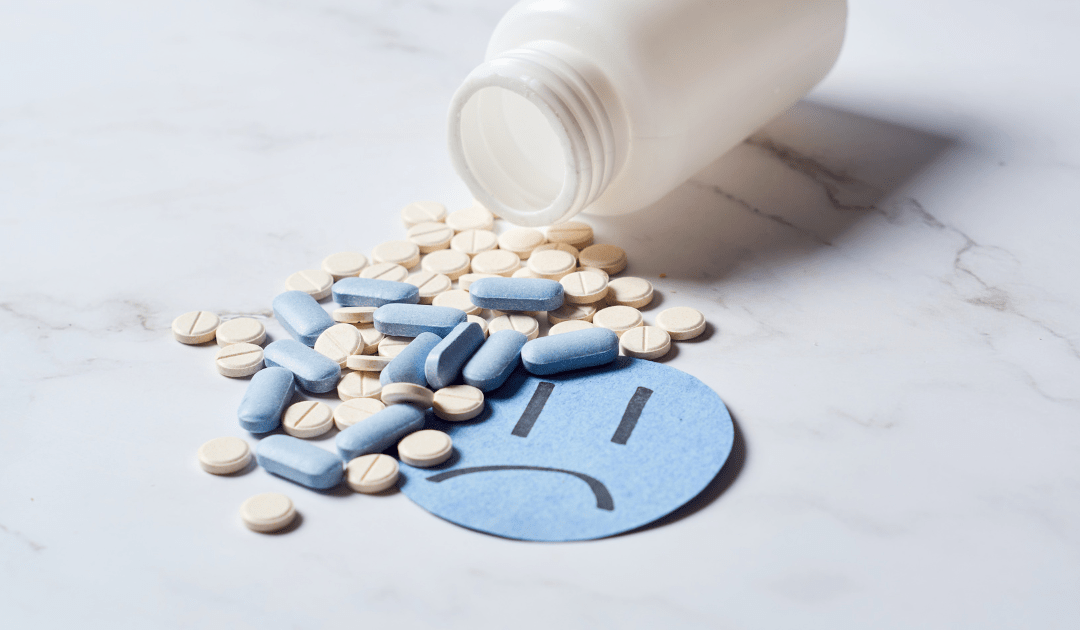Navigating the complexities of anxiety and depression can often feel like traversing a labyrinth, with twists and turns that leave one feeling overwhelmed and lost. However, amidst this labyrinth, there are guiding lights and tools available to help navigate the journey towards healing. Two primary options stand out: therapy and medication. Each offers its own benefits and considerations, and in some cases, a combination of both can provide a holistic approach to mental well-being.
Therapy: Illuminating the Path
Think of therapy as the guiding light that illuminates the darkest corners of your mind. In therapy sessions, individuals are provided with a safe space to explore their thoughts, emotions, and behaviors under the guidance of a trained therapist. Through various therapeutic modalities such as cognitive-behavioral therapy (CBT), dialectical behavior therapy (DBT), or psychodynamic therapy, individuals learn coping strategies, gain insight into their thought patterns, and develop skills to manage their mental health more effectively.
One of the most significant advantages of therapy is its personalized approach. Therapists work collaboratively with clients to tailor treatment plans to their specific needs and goals. Whether addressing past traumas, navigating relationship issues, or managing day-to-day stressors, therapy offers a supportive environment for growth and self-discovery.
Medication: Restoring Balance
On the other hand, medication serves as a crucial tool in restoring balance to the brain’s chemistry. For individuals experiencing severe symptoms of anxiety or depression, medication can provide relief by regulating neurotransmitters and reducing the intensity of symptoms. Antidepressants, SSRIs, SNRIs, and benzodiazepines are among the commonly prescribed medications for mental health conditions.
It’s essential to approach medication with patience and understanding. Finding the right medication and dosage may require trial and error, and individuals may experience side effects during the adjustment period. However, with proper monitoring and communication with a healthcare provider, medication can be an invaluable component of a comprehensive treatment plan.
The Synergy of Therapy and Medication
While therapy and medication offer distinct benefits, their combined impact can be even more powerful. This synergy is particularly beneficial for individuals with complex or severe mental health issues. Therapy provides the tools and strategies to address underlying issues and develop coping skills, while medication offers physiological support to facilitate progress.
Moreover, the combination of therapy and medication can help address both the biological and psychological aspects of mental illness, leading to more comprehensive and long-lasting outcomes. It’s essential for individuals considering this approach to work closely with their healthcare providers to ensure coordination and optimization of treatment strategies.
Empowerment Through Choice
Ultimately, the decision between therapy, medication, or a combination of both rests with the individual. It’s essential to recognize that there is no one-size-fits-all approach to mental health treatment. Each person’s journey is unique, and what works for one individual may not be suitable for another.
Empowerment lies in making informed choices based on personal preferences, treatment goals, and the severity of symptoms. Open and honest communication with mental health professionals is key to finding the right path towards healing. Whether embarking on therapy, medication, or both, the important thing is to take proactive steps towards prioritizing mental well-being.
Embracing the Journey
Healing from anxiety and depression is not a linear process but rather a journey of self-discovery and resilience. Regardless of the chosen path, it’s essential to embrace the journey with compassion and patience. Some may find solace in the introspective space of therapy sessions, while others may experience relief through the biochemical support of medication. Whichever path is chosen, seeking help is a courageous act of self-care and self-love.
In conclusion, therapy and medication are not opposing forces but complementary tools in the journey towards mental well-being. By embracing the choice that aligns with individual needs and preferences, individuals can embark on a path of healing and self-empowerment. Remember, the journey towards mental health is unique to each person, and there is strength in taking the first step towards seeking support and guidance.

Q&A on Therapy vs Medication
A deep dive, easy to read, review of Therapy vs. Medication for Anxiety & Depression – or Both?
What is the difference between therapy and medication?
Therapy involves talking to a trained professional, such as a therapist or counselor, to address mental health issues through discussion, insight, and coping strategies. Medication, on the other hand, involves the use of prescribed drugs to regulate brain chemistry and alleviate symptoms of mental illness.
Is therapy better than medicine?
The effectiveness of therapy vs medication depends on individual circumstances, preferences, and the nature of the mental health condition. Some individuals may find therapy more beneficial for gaining insight and developing coping skills, while others may require medication to address biochemical imbalances in the brain. In many cases, a combination of therapy and medication yields the best results.
What is the difference between therapy and treatment?
Therapy and treatment are often used interchangeably, but there is a subtle distinction. Therapy refers specifically to the psychological interventions, such as talk therapy or cognitive-behavioral therapy, aimed at addressing mental health issues. Treatment, on the other hand, encompasses a broader range of interventions, including therapy, medication, lifestyle changes, and other modalities, with the goal of improving overall well-being.
How does medication and therapy work together?
Combining medication and therapy can be highly effective in treating mental health conditions. Therapy helps individuals develop coping skills, gain insight into their thoughts and behaviors, and address underlying issues contributing to their symptoms. Medication works to regulate brain chemistry and alleviate the severity of symptoms. Together, therapy and medication provide a comprehensive approach to treatment, addressing both the psychological and physiological aspects of mental illness.
